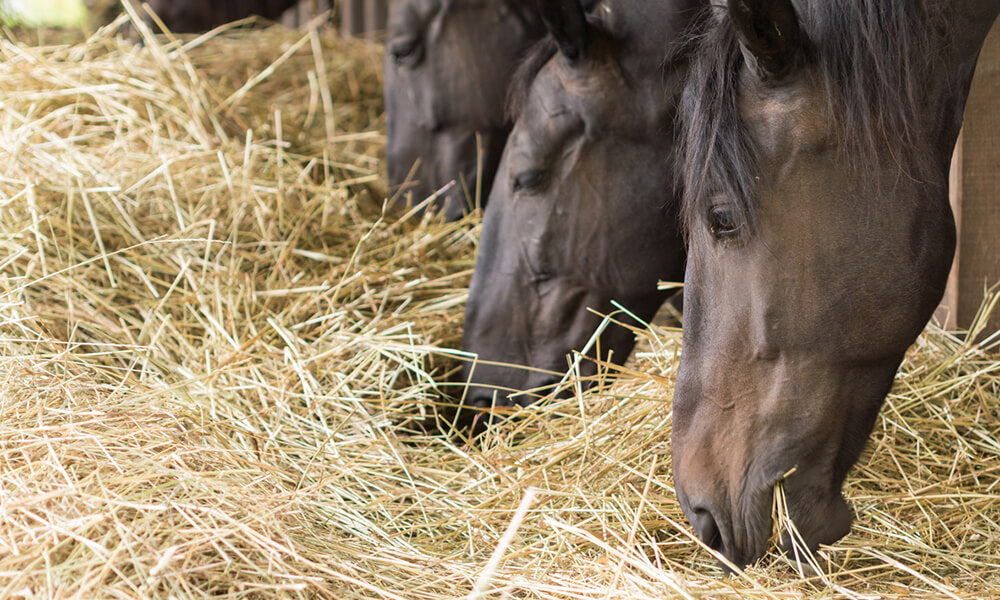Horse owners facing the challenge of helping their horses gain weight may find themselves navigating through a plethora of options. Identifying the right horse feed for weight gain is critical. This article delves into various feeds and strategies that can effectively aid in your horse’s weight gain journey.

Why Weight Gain Might Be Necessary
Several factors contribute to a horse’s need for weight gain. These can include recovery from illness, increased workload, or simply age-related changes in metabolism. Knowing when and why to adjust your horse’s diet is the first step towards ensuring their health and vitality.
Signs Your Horse Needs Extra Calories
Understanding the signs that indicate weight gain is necessary can save you time and anxiety. Look for visible rib bones, a lack of muscle mass, and poor coat condition. Before making any diet changes, consult with a veterinarian to rule out underlying medical issues.
The Basics of Equine Nutrition
Equine nutrition is foundational in ensuring proper weight gain. Horses require a diet high in fiber and supplemented with essential vitamins and minerals. Balanced nutrition supports digestion and overall health, making it easier for horses to gain weight effectively.
Learn more about how to measure a horse in hands to keep track of growth and wellness by reading this article: How to Measure.
Types of Feed to Consider
Choosing the right horse feed for weight gain can be daunting, but understanding the different feeds can simplify the process. Look for high-calorie feeds, such as those rich in oils or grains. Beet pulp and alfalfa are excellent options, providing substantial calories and nutrients.
Selecting the Best Feed for Your Horse
High-Calorie Grain Feeds
Grain feeds are often used for horses needing an increase in energy and calories. Oats, corn, and barley are traditional grains that can be mixed into a horse’s daily diet. However, it’s important to introduce them gradually to avoid digestive upset.
Benefits of Beet Pulp
Beet pulp is another popular option for weight gain. It offers high digestibility and energy levels without the risk of starch overload found in some grain diets. This makes it particularly beneficial for horses with sensitivity issues.
Feeding Strategies and Their Importance
Regular and Consistent Feeding
Consistency in feeding is crucial for weight gain. Divide daily feed into multiple smaller meals to enhance digestion. This strategy assists in maintaining energy levels throughout the day, preventing peaks and troughs in metabolism.
Learn about the Arabian-Berber Horse and how its metabolism adapts to various feed strategies.
Incorporating Oil for Extra Calories
Adding vegetable or corn oil to your horses feed can significantly increase caloric intake. Oil provides a dense energy source that is more easily metabolized than carbohydrates, aiding in healthy weight gain.
Monitoring and Adjusting Feed
Consistent monitoring is a staple in efficient feeding for weight gain. Observe changes in body condition and adjust feed formulas as needed in consultation with an equine nutritionist or veterinarian. Each horse will respond differently to dietary changes.
Importance of Regular Health Checks
Regular health evaluations play a pivotal role in weight management. A veterinarian can assess if any underlying conditions are affecting your horse’s ability to gain weight and suggest medical interventions if necessary. Consider blood and mineral testing as part of this thorough evaluation.

Common Mistakes to Avoid
As feeding strategies evolve, avoid common pitfalls such as over-reliance on any single feed type or drastic changes without gradual introduction. A measured approach is always recommended for stable weight gain.
Ensuring Balance with Supplements
Supplements can bolster diets but should not replace natural food sources. Choose supplements that enhance rather than replace nutritional intake to achieve desired weight results without compromising other health aspects.
The Role of Exercise in Weight Gain
While it may seem counterintuitive, exercise helps promote muscle development and weight gain. Moderate, controlled activities can stimulate appetite and improve overall health.
Conclusion
Successfully helping a horse gain weight requires understanding, patience, and the right nutritional strategies. By selecting the appropriate horse feed for weight gain and employing mindful feeding practices, equine enthusiasts can enjoy the rewards of a healthier, happier horse.
FAQs
Q: How long does it take for a horse to gain weight?
A: Depending on the horse’s condition and metabolism, noticeable weight gain can take several weeks to a few months.
Q: Can too much grain be harmful?
A: Yes, an excess of grain can lead to digestive issues and should be fed in moderation.
Q: Should senior horses have special diets?
A: Older horses may require specialized feeds that are easier to digest while providing adequate nutrients for weight maintenance.
This article contains affiliate links. We may earn a commission at no extra cost to you.
